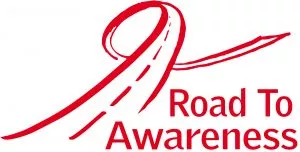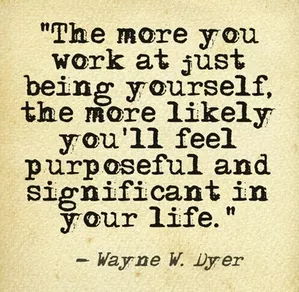 Confidence: firm trust, a sense of self, appreciation someone’s proven track record
Confidence: firm trust, a sense of self, appreciation someone’s proven track record
If you look up the word in the dictionary, that is not what you find.
All dictionaries are now in step with the tendency to make words vague, not matching the reality… this word is a crucial word in your vocabulary. Unless you get this right, your chances of having a self, and thus the chance for self-confidence are between zero and none.
No one takes my Starting Point Measurements seriously. How do I know? Because I have literally haven’t had anyone ask clarifying questions about certain key concepts that will make or break you… Not even one.
For example, no one has asked me what is awareness really? Or what is trust? Or goodness… etc.
 These are the type of words…
These are the type of words…
…that unless you get them right, your chances for clarity are dim, and you remain a bumbling idiot.
Oh, you didn’t know that you are a bumbling idiot? Now you know.
Yesterday I finished The Fountainhead. It took me 10 days to read it. I looked up every word I wasn’t sure about… about 100, maybe more. Thankfully the Kindle has it built in…
My biggest issue with every book is that they lack the width, and they lack even a hint to the path to get to where the hero is. In this case, Roark, Mike, the sculptor (forgot his name), Henry Cameron, what way does one become a creator, a Self, self-confident, self-respectful individual in a world of sniveling parasites, second-handers, second-raters?
As you can tell from my inquiry, this is where my passion lies: to discover paths to states of being, to summits, to becoming a human being… not describing the end result as most people do.
 One of the reasons people talk ONLY about the end result is… drumroll please, because they themselves didn’t have to scale that mountain, they are only talking about it.
One of the reasons people talk ONLY about the end result is… drumroll please, because they themselves didn’t have to scale that mountain, they are only talking about it.
There were and have been rare exceptions, but those people mostly didn’t talk… they created. Or they didn’t pay much attention, so essentially don’t know.
Osho is one of these people who talks about stuff he has not done, has not experienced himself. Osho is a Power person… not particularly interested in any of that stuff… He is interested in teaching it, and getting people follow him.
Buddha didn’t allow the divine to get to him… I get no for all four quadrants, but being inspired by self… I get a yes. Hm.
But reading through the question: what might be the path to Self.
I just did a little search on Google “path to self” and found almost eight million pages… but none of them considers that before you can get self-confidence, self-fulfillment, self-compassion, and myriad of those self-hyphen-something, you need to have a Self.
So what is a Self? Self is your consciousness. Your spirit, your soul.
Yogapedia says: The Self is what makes someone an individual; it is the essential being of a person, one’s ego, and the awareness of one’s own inner person. One of the aims of yoga is to become more self-aware, able to distinguish between one’s inner life and thoughts, as well as connect with the higher or true Self.
Ayn Rand says this, through Roark and Gail Wynand:
It’s so easy to run to others. It’s so hard to stand on one’s own record. You can fake virtue for an audience. You can’t fake it in your own eyes. Your ego is your strictest judge. They run from it. They spend their lives running. It’s easier to donate a few thousands to charity and think oneself noble than to base self-respect on personal standards of personal achievement. It’s simple to seek substitutes for competence—such easy substitutes: love, charm, kindness, charity. But there is no substitute for competence.”
“That, precisely, is the deadliness of second-handers. They have no concern for facts, ideas, work. They’re concerned only with people. They don’t ask: ‘Is this true?’ They ask: ‘Is this what others think is true?’ Not to judge, but to repeat. Not to do, but to give the impression of doing. Not creation, but show. Not ability, but friendship. Not merit, but pull. What would happen to the world without those who do, think, work, produce? Those are the egotists. You don’t think through another’s brain and you don’t work through another’s hands.
When you suspend your faculty of independent judgment, you suspend consciousness. To stop consciousness is to stop life.
Second-handers have no sense of reality. Their reality is not within them, but somewhere in that space which divides one human body from another. Not an entity, but a relation—anchored to nothing. That’s the emptiness I couldn’t understand in people. That’s what stopped me whenever I faced a committee.
Men without an ego. Opinion without a rational process. Motion without brakes or motor. Power without responsibility. The second-hander acts, but the source of his actions is scattered in every other living person. It’s everywhere and nowhere and you can’t reason with him. He’s not open to reason.
You can’t speak to him—he can’t hear. You’re tried by an empty bench. A blind mass running amuck, to crush you without sense or purpose. Steve Mallory couldn’t define the monster, but he knew. That’s the drooling beast he fears. The second-hander.”
Consciousness is Self.
Of course you can be conscious of something… meaning you noticed it, but that is not consciousness itself. Consciousness is the root, being conscious of something is a branch. A derivative.
In this particular article I want to write (quote) more about one of the components that is essential, and maybe a path to Self: awareness. And see if we can find a way to cause awareness to that end… to help us get a Self… without which we are really not human, we are machines. Or zombies. Animated by something we have no control over.
The opposite of awareness is being asleep
Osho has many talks on awareness, and being asleep. He has many active meditation techniques, but according to my observation as a true empath, I can see no awareness while people do what he calls meditation. And interestingly, I don’t see HIM being aware. And yet, my sense is, confirmed by muscletesting, that awareness is a step on the path to Self. So we’ll explore it.
It may take more than one article, experimenting, working one-on-one with selected students, documenting what caused the shift for them, so you can start following them, if you wish.
OK, here is Osho:
One of the most important things to be understood about man is that man is asleep. Even while he thinks he is awake, he is not. His wakefulness is very fragile; his wakefulness is so tiny it doesn’t matter at all. His wakefulness is only a beautiful name but utterly empty.
You sleep in the night, you sleep in the day—from birth to death you go on changing your patterns of sleep, but you never really awaken. Just by opening the eyes don’t befool yourself that you are awake. Unless the inner eyes open—unless your inside becomes full of light, unless you can see yourself, who you are—don’t think that you are awake. That is the greatest illusion man lives in. And once you accept that you are already awake, then there is no question of making any effort to be awake.
The first thing to sink deep in your heart is that you are asleep, utterly asleep. You are dreaming, day in, day out. You are dreaming sometimes with open eyes and sometimes with closed eyes, but you are dreaming—you are a dream. You are not yet a reality.
Of course in a dream whatsoever you do is meaningless.
Whatsoever you think is pointless, whatsoever you project remains part of your dreams and never allows you to see that which is. Hence all the buddhas have insisted on only one thing: Awaken! Continuously, for centuries, their whole teaching can be contained in a single phrase: Be awake. And they have been devising methods, strategies; they have been creating contexts and spaces and energy fields in which you can be shocked into awareness.
Yes, unless shake you, shaken to your very foundations, you will not awaken. The sleep has been so long that it has reached to the very core of your being; you are soaked in it. Each cell of your body and each fiber of your mind has become full of sleep. It is not a small phenomenon. Hence great effort is needed to be alert, to be attentive, to be watchful, to become a witness.
If all the buddhas of the world agree on any one single theme, this is it — that man as he is, is asleep, and man as he should be, should be awake.
Wakefulness is the goal and wakefulness is the taste of all their teachings. Zarathustra, Lao Tzu, Jesus, Buddha, Bahauddin, Kabir, Nanak—all the awakened ones have been teaching one single theme … in different languages, in different metaphors, but their song is the same.
Just as the sea tastes of salt — whether the sea is tasted from the north or from the east or from the west, the sea always tastes of salt—the taste of buddhahood is wakefulness. But you will not make any effort if you go on believing that you are already awake. Then there is no question of making any effort; why bother?
And you have created religions, gods, prayers, rituals, out of your dreams—your gods are as much part of your dreams as anything else.
Your politics is part of your dreams, your religions are part of your dreams, your poetry, your painting, your art — whatsoever you do, because you are asleep, you do things according to your own state of mind.
Here is another thing he says:
If you are carrying stones in your hand thinking that they are diamonds, I will not tell you to renounce those stones. I will simply say, “Be alert and have another look!”
If you yourself see that they are not diamonds, is there any need to renounce them? They will fall from your hands of their own accord. In fact, if you still want to carry them, you will have to make a great effort, you will have to bring great will, to still carry them. But you cannot carry them for long; once you have seen that they are useless, meaningless, you are bound to throw them away.
Meaning: if you bring consciousness to what you aim for, what you value, what you want, what you are doing and why, if you bring consciousness to it, you’ll experience a spontaneous dropping of what has no value, what has no value to you.
No effort is necessary, not even a decision, no discipline, nothing other than bringing consciousness to something.
I use the 67 steps program in my coaching. Why? because Tai Lopez takes you through many aspects of life that if you bring consciousness to it, you’ll find your path to a life you can love.
 You cannot find a life you can love without a Self to love it.
You cannot find a life you can love without a Self to love it.
Bringing consciousness to something is also called awareness. Sober, clear eyes, clarity.
It is often frightening, and the fear puts you to sleep. It is often that you overwrite what Tai says with your commentary, so you can’t hear what he is saying… and then nothing will happen.
But it is a great practice: endeavoring to hear what is being said, instead of your inane commentary… translated to fit the tight confines of your cave.
The lower the “about you” number is, the closer you are to accomplish this simple sounding feat… it isn’t simple, and it isn’t easy.
When you look inside you, all you see is emptiness. It’s accurate. You are empty inside until you get a Self.
The Self in Self-Confidence.
The absolute fastest way to fill that emptiness is through Competence.
Competence is rare. Very rare.
The dictionary says: Competence is the ability to do something successfully or efficiently.
If you widen your cone of vision: competence is a mastery… and that is what makes it rare. Because people stop way way way before achieving mastery. Good enough is good enough. You get an Emmy, you get strait A’s, you get accolades, and that is what you wanted.
Competence, or mastery is available only when there is an inner calling for mastery. The outer, the horizontal plane will NEVER call for mastery, it is not rewarded.
So if you focus on the reward, you won’t go for it. And surprise: you’ll never grow a Self.
They are interdependent.
No mastery without Self, no Self without mastery.
So here are the steps I have uncovered so far:
1. Notice that you are asleep
2. Bring consciousness to it… get aware
3. Pick an area of life and an activity to attain mastery in.
4. Do what is needed to do to attain it. With your effort your Self will spring into life.
“What competencies should I improve?”
That depends on what you’re after. But there are also some universal skills that I believe every person can benefit from. I’ve made a list of 7 skills. And here 3 more ideas for you:
- Emotional intelligence — Research shows that humans are inherently social. Without good relationships, we die. And if you want good relationships, you need emotional intelligence: Understanding other people’s emotions and how to respond to them. This is something you can learn.
- Self-awareness — You can practice self-awareness by continuous self-reflection. Write down your thoughts; try to understand why you do what you do, what you can do better, and what you’re doing well. Know yourself.
- Problem-solving — Our current school system dates from the industrial revolution. We’re trained to become cogs in a wheel. We’re not trained to solve problems in complex situations — instead, we do what we are told.But the world has changed and in the current state, the person that is better at problem-solving will win.
Don’t fool yourself into thinking that your life will be better as long as you wish for it.
When you put in work and see the results — like a stronger body, more energy, more money, or whatever you’re after — you start believing in your ability to get shit done.
Now go out there, do things, get better at them, see results, repeat that process and grow more confident.
by Darius Foroux
I am working on mastery in growing my income, without breaking my back. Half an hour a day. Why not more? Because Being in silence, doing nothing in particular is my secret to what I do: penetrating the invisible part of truth.
